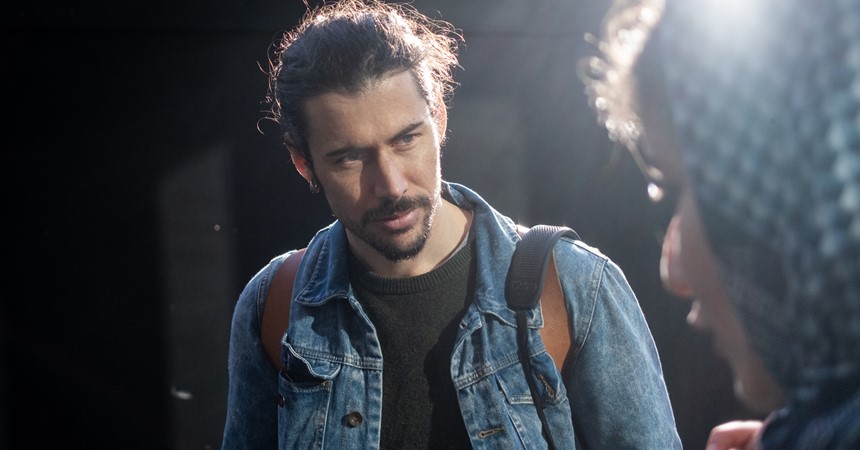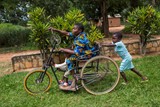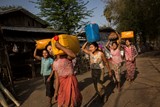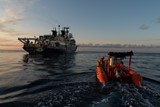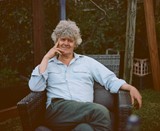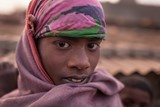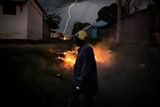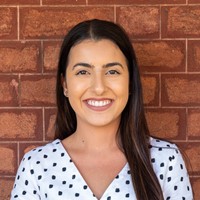Following the trip, Conor realised his potential to be the change he wanted to see in the world. After school, he completed a Bachelor of Development Studies at the University of Newcastle and later completed further studies in Sweden.
Nowadays, Conor uses his camera to document and share the rich breadth of stories of marginalised communities throughout the world. Storytelling, he says, is a medium that has allowed him to exercise his natural-born curiosity and love of people to incite education, awareness and ultimately, change.
Conor's work has taken him to more than 40 countries, and it has been documented in prestigious publications worldwide, including The New York Times.
Until March last year, it had been more than a decade since Conor had slept in the same bed for a stretch longer than 2.5 weeks. But whilst the COVID-19 pandemic has halted his international travel, it has not dampened his spirit to tell stories of local communities.
What Catholic school(s) did you attend?
- Holy Trinity Primary School, Wagga Wagga
- St Brigid's Primary School, Kyogle
- St Therese's Primary School, New Lambton
- St Pius X High School, Adamstown and
- St Francis Xavier's College, Hamilton.
My father was a school principal in the Catholic system, so we moved around a bit!
Why did your parents choose a Catholic education for you?
I was raised in a strong Catholic family. My Mum and Dad have only ever worked for Catholic agencies in social work and education, respectively. My Dad now serves as an assistant director of Catholic Schools in the Archdiocese of Brisbane; my brother is a Marist school teacher, and about a quarter of my work is for faith-based organisations. Catholic social teachings underpin our family's identity, so it made sense that my siblings and I would attend Catholic schools.
What is your fondest memory from your schooling years?
When I reflect on my early years, my time in the tight-knit Kyogle community really resonates. However, my senior years at St Francis Xavier's College were also particularly significant.
The principal at the time was Marist Brother, Brother Hubert Williams, who remains a good friend and mentor today. After I returned from an immersion to the Lavalla Primary School, Cambodia I came back with this real passion for changing the world. At the time, I thought that it had to be out in the streets, protesting and marching or doing something for the forests in Tasmania, but Brother Hubert said, “no, you can do it here”. I then decided that I would give up my half-baked attempt at a teenage football career and, with his encouragement and blessings, set up a social justice group at the school.
This memory of Brother Hubert supporting me to make a change and take action is close to my heart.
You describe yourself as a storyteller. What has been your favourite story to tell?
I'm most interested in telling the stories of people who want their stories told and who probably have never felt their story mattered or was of value. Many of the people I work with are individuals or groups who are marginalised or have experienced discrimination and stigma. Since returning to Australia, a lot of my work has revolved around people experiencing homelessness, drug overdose, substance use – who are quite often a very marginalised community. They are typically stories not told positively, but I choose to focus on these people's strengths. I am confident that if Jesus was walking on earth today, he would be in solidarity with these communities.
You have worked with organisations such as UNICEF, World Wide Fund for Nature (WWF), Australian Red Cross, the World Health Organisation, World Vision, Australian Aid and the Centre for Social Impact, helping them to educate the community. How do you think awareness helps to mobilise change?
The reality is that change is not an easy thing to create.
I studied community development due to my interest in working with people.
I realised that publishing in the media was not going to be a medium that would achieve the personal goals I had of creating impact through my work.
When World Vision engaged me, I had the opportunity to revisit communities in South Africa every six months. It provided a chance to follow people’s journey, their ups and downs. We were able to show the people their series of interviews to demonstrate how they had changed. This process underpins what I love to do: working with people, rather than simply making beautiful stories. I believe that's where the power in storytelling lies.
Having worked with people from diverse backgrounds promoting environmental campaigns across the globe, how does this influence your perception on the importance 'on care for our common home?'
Being a steward of the planet means taking on the responsibility of being accountable for the environment.
In my work, I use a strengths-based approach. When I think about the environment, I can feel that we have depleted many natural resources. I recognise a lot of cultures have been negatively impacted by globalisation and colonisation. I understand we cannot turn back time. But, looking to the future, we must use our energies to think of ways of giving increased value.
In the past, climate change, caring for the environment and valuing cultures more equally were fringe concepts. However, I am impressed that today there is a huge uptake amongst young people that are making these issues more mainstream. To hear younger people discussing these topics inspires me to try to do more.
